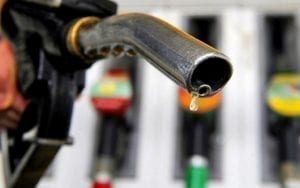The 17 pesewas per litre increase in fuel margins previously announced by the National Petroleum Authority (NPA) has been reduced to 9 pesewas per litre.
The reduction is expected to take effect from Wednesday May 5, the NPA said in a statement.

The statement dated May 4 said “At a meeting held at the Ministry of Energy earlier today between the Hon. Minister for Energy and the National Petroleum Authority (NPA), the Association of Oil Marketing Companies (AOMCS), Bulk Oil Storage and Transportation Co Ltd (BOST), the Chamber of Petroleum Consumers (COPEC), the Institute for Energy Policies and Research (INSTEPR), it has been agreed as follows;
“The 17 pesewas per litre increase in fuel margins previously announced by the NPA has been reduced to 9 pesewas per litre effective tomorrow Wednesday 5th May 2021.”
This comes after scores of Ghanaians have expressed concerns on social media about the high fuel prices in the country.
The Industrial Relations Officer for the Ghana Private Road Transport Union (GPRTTU) in the Greater Accra region, Alhaji Abass Imoro, had served notice that transport fares were going to be increased due to the high fuel prices.
He told Alfred Ocansey on the Sunrise show on 3FM Tuesday May 4 that the decision to increase the fares was as a result of the increment in fuel prices.
He said this was the only way to ensure that transport operators survive.
Fuel prices had gone up by some 4.4%.
Alhaji Imoro said “After the budget we started planning also the way to go about it and now they have come up with the petrol, we are waiting for the road toll. It is also on the way coming.
“Definitely tomorrow, if God permit our leadership will come up with very reasonable percentage [transport fares] as to how to move forward.
“Most of the time it is very difficult, it is very painful but without that we cannot survive. Look at the surrounding counties around us, is that the way they have been increasing their fuel products? The answer is no.”
By Laud Nartey|3news.com|Ghana


